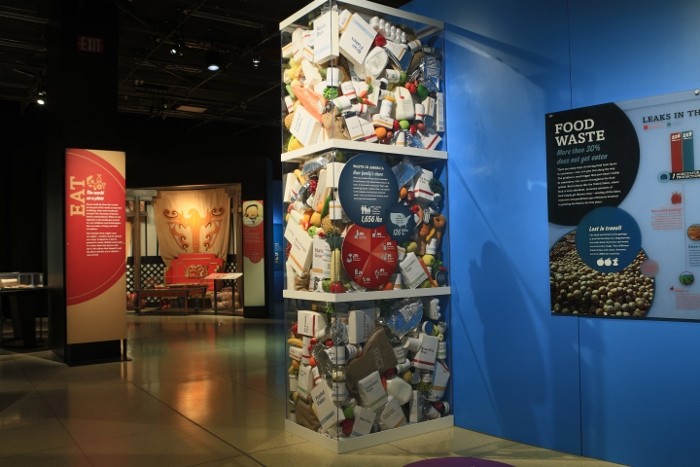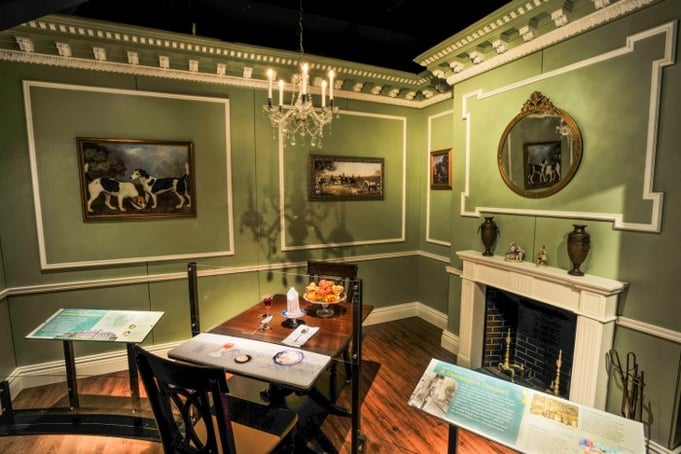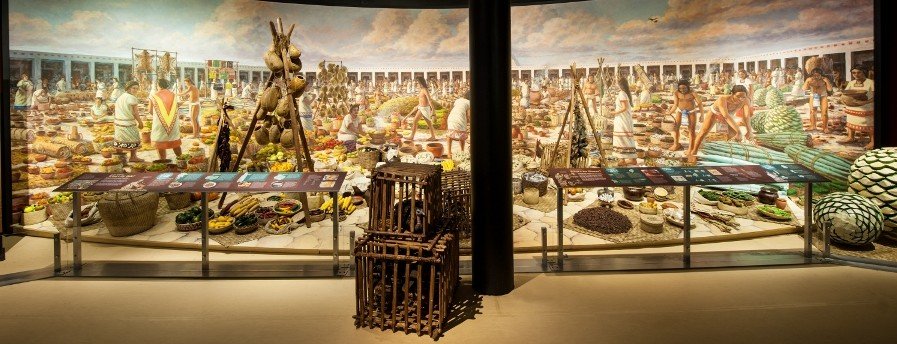By May Zhee Lim, Markets Media Life Correspondent
When it comes to food, we may know the best restaurants in town and our favorite dishes, but chances are we know little about the intricate system behind the production of our food. At the National Geographic Museum in Washington, D.C. you can learn all about the history and future of food in the traveling exhibition “FOOD: Our Global Kitchen.”
 "Food: Our Global Kitchen" exhibition at the National Geographic Museum in Washington, D.C. October 16, 2014 - February 22, 2015
"Food: Our Global Kitchen" exhibition at the National Geographic Museum in Washington, D.C. October 16, 2014 - February 22, 2015
© Rebecca Hale/National Geographic
Organized by the American Museum of Natural History, “FOOD” complements National Geographic’s own inquiry into global food issues, such as their Future of Food Series. At the Nat Geo museum, visitors can browse through sections dedicated to every aspect of food consumption, from the growing of food to the culinary habits of people around the world. Some exhibits are also highly interactive, allowing visitors to sample seasonal treats, smell ingredients at designated stations, or cook a virtual meal.
 "Food: Our Global Kitchen" exhibition at the National Geographic Museum in Washington, D.C. October 16, 2014 - February 22, 2015
"Food: Our Global Kitchen" exhibition at the National Geographic Museum in Washington, D.C. October 16, 2014 - February 22, 2015
© AMNH/D. Finnin
On view at “FOOD” are rare cooking artifacts and dining rooms of famous historical figures, in case you’re curious about how personalities like Gandhi, Jane Austen, and Kublai Khan dined. Exclusive to the Nat Geo exhibit is an 18-foot tall hydroponic vertical system that grows a variety of herbs. The garden sheds light on sustainable food-growing techniques and ways to maintain agricultural biodiversity in our increasingly urban environments.
Feeling hungry after absorbing all those fascinating facts about food? The test kitchen, presented by Whole Foods Market, will satisfy your whetted appetites with daily samplings, taste tests, and cooking demonstrations. The theme of the kitchen changes every two weeks and is currently about holiday celebrations. The exhibition will close on February 22, 2015.
Admission to the National Geographic Museum in Washington, D.C. is $11 for adults, $9 for National Geographic members, military, students, seniors and groups of 25 or more, $7 for children 5-12, and free for local school, student and youth groups (18 and under; advance reservation required). More information here.
Featured image © AMNH/Denis Finnin














